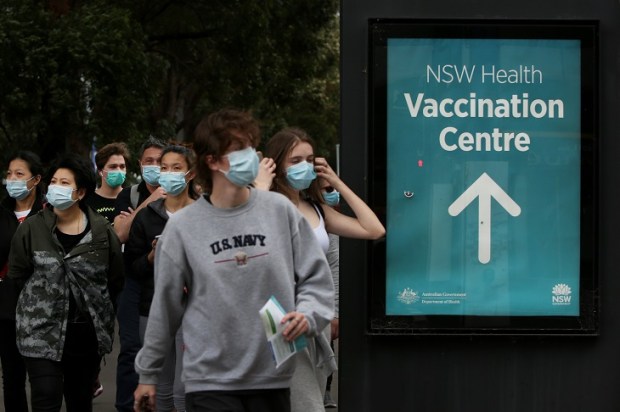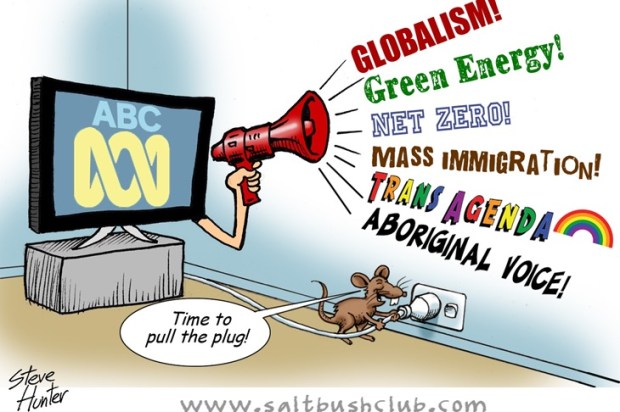With Covid jabs now beginning to roll out, my sense is that we’ll soon declare victory over the pandemic and conclude that “Australia had a good war”. At one level, there’s no doubt that we’ve done well. If minimising Covid deaths is the yardstick, our performance has been “world-class”, “gold standard” even. Still, I’m far from sure that our response has justified the self-congratulation now oozing from state and federal first ministers’ every pore.
For one thing, there’s a massive economic downside to the health upside. Sectors like higher education and aviation will take years to recover. Getting the $200 billion federal deficit and the $1 trillion federal debt back under control will be the work of a generation, especially as the expectation that more government spending is the solution to every problem has become even more entrenched.
Politicians’ tendency to hide behind “advice” rather than take full responsibility for their own actions has been massively reinforced. For the best part of a year, we’ve been less than a democracy. It’s not just the semi-permanent state of emergency and rule by decree in Victoria. It’s the fact that decision-making has been delegated from elected and democratically accountable politicians to unelected and unaccountable “experts”. Of course, subject matter specialists must be taken seriously. But as we’ve discovered, the “science” differs from state to state, given the different premiers’ different approaches to lockdowns, all supposedly done (or not) following “expert advice”.
Then there’s the so-called “national cabinet”, now likely to become a fixture, that’s done two things: first, it’s elevated the premiers to equal status with the prime minister; and second, it’s made it harder for the national government to make decisions, without imposing any greater coherence on the decisions of the states. The states have only followed national cabinet “decisions” where it suited them, while Scott Morrison has been left to explain and justify state actions in ways that would once have been inconceivable from a Liberal prime minister.
In my judgment, it could take years for our sense of nationhood to recover from resentment at the states’ locking out each other’s citizens as well as locking up their own. Then there’s the psychic scarring from having to provide “papers” at state border crossings, let alone the frequent need to justify to authority the sorts of movements that every Australian has previously taken for granted. Especially in Victoria, it’s been shades of East Germany complete with a “ring of steel” around Melbourne.
Too many police seem to have relished going after soft targets like the pregnant Victorian woman, whom the riot squad arrested in front of her children for the crime of encouraging people on-line to go to a protest against lockdown rules. There was the obvious double standard in making not a single arrest at a huge left-wing protest in Melbourne but some 400 arrests at a smaller protest against ongoing restrictions on how people live. And again, shades of totalitarianism, there’s been no shortage of Australians happy to “dob” in people perceived to be breaking the rules.
There’s the sheer cruelty of preventing visits to people in aged care facilities on the grounds of potential infection — a classic case, surely, of putting the preservation of life ahead of the quality of life. Yet almost no one has been ready to question the absolute priority of putting the prevention of Covid ahead of all other national goals. There’s been the mask mania taken to ridiculous extremes such as requiring Brisbane motorists to wear one even while driving alone. And the bizarre inconsistency in allowing thousands to gather to watch tennis or cricket while limiting household gatherings to a mere handful.
What does it say about today’s Australians that we’ve been prepared to accept without serious protest the most draconian restrictions on daily life to protect us from a disease that has a less than one in 5000 chance of killing anyone under 50 who catches it? Sure, the death rate increases dramatically for people over 80 who are typically often frail and sick. But even in Britain, which mostly resisted border controls and hard lockdowns, and where Covid was supposedly out-of-control for much of last year, the death rate increased from just under nine per thousand to just over ten per thousand, a significant lift in mortality to be sure but not necessarily a justification for the health despotism now in vogue there.
As a 76-year-old recovering alcoholic with several co-morbidities, I suppose I should be grateful for Australians’ apparent willingness to endure unprecedented restrictions on their movement to keep people like me from becoming infected. I am indeed grateful for the early imposition of quarantine on returning travellers and for the fortuitous presence of a large domestic vaccine manufacturer – as it’s these that will turn out to have been most responsible for our comparative success in handling the pandemic.
As for the rest of our response, especially lockdowns that should be a last resort rather than a first, I think it shows our contemporary inability to manage risk and lack of a sense of proportion. Every year, about 50,000 Australians die from cancer, about 40,000 from heart disease, and about 3000 from suicide. Most years about 1000 Australians die from flu (and mostly the same cohort that Covid kills). Every death is sad but why are deaths from Covid not just more tragic but worthy of a response equivalent to that of a major war?
Because Covid is a new killer rather than an “old” one, our obsessive focus on it suggests to me that modern Australians will put up with almost anything if it reduces their chance of death. It’s good that we currently have no external enemies who might offer us the choice of submission or death. Because if we did, they might well be emboldened by what they’ve seen.
Emeritus Professor of History & Politics at Griffith University, Ross Fitzgerald’s most recent books are the co-authored Grafton Everest adventures ‘The Dizzying Heights’ and ‘So Far, So Good’ and a memoir ‘Fifty Years Sober: An Alcoholic’s Journey’, all published by Hybrid in Melbourne.
Got something to add? Join the discussion and comment below.
Get 10 issues for just $10
Subscribe to The Spectator Australia today for the next 10 magazine issues, plus full online access, for just $10.


























Comments
Don't miss out
Join the conversation with other Spectator Australia readers. Subscribe to leave a comment.
SUBSCRIBEAlready a subscriber? Log in